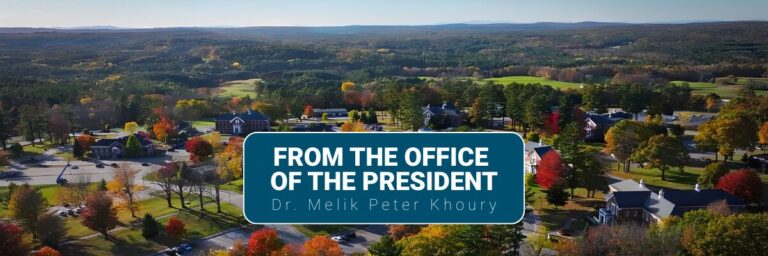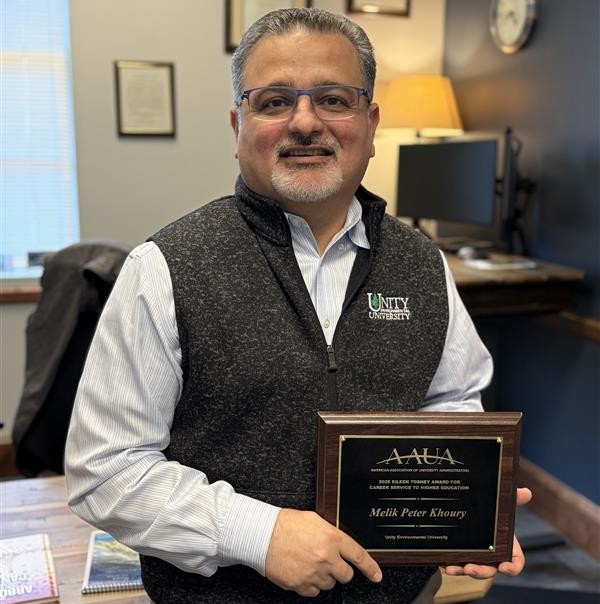Tom Mullin, a Unity College Associate Professor of Parks and Forests Resources was one of three faculty in the state who received this year’s Donald Harward Award from the Maine Campus Contact for his efforts of using service learning (or community based learning) as an innovative teaching tool to engage students in civic learning. The presentation took place at the Hall of Flags at the State House in Augusta on April 30, 2013.
Maine Campus Contact is an organization that works with member college campuses to encourage the engagement of students in community problem-solving. Each year, the organization awards faculty members for outstanding contributions to campuses and communities through campus civic engagement.
The Donald Harward Award for Faculty Service Learning Excellence recognizes faculty who integrate community or public service into the curriculum and who work to institutionalize service learning. Award winners show clear evidence of reflection, community benefit, reciprocity with community partners and a commitment to advocating for service-learning and/or community action on campus and beyond.
Unity College faculty members have been nominated many times, however Mullin is only the third recipient from the College.
Service learning is a successful method used by many faculty members at Unity, and is fostered in conjunction with the College’s Community-Based Learning (CBL) office. Students are encouraged to work on environmental and community-wide issues and, with the help of faculty and the CBL office, are provided with the opportunity to work alongside professionals, private citizens and local leaders to identify and implement real solutions to real issues.
Mullin has been involved in service learning his entire professional career. Prior to coming to Unity College 14 years ago, Mullin had almost 20 years of experience in various service learning (capacities), from park manager to executive director for local park agencies, land trusts and environmental learning centers. In addition, he served as the community partner for many local schools and college/university service learning programs.
The integration of community based learning, bridging real life projects into an academic setting, is an invaluable component of teaching for Mullin, and he strives to incorporate it into all of his courses across the curriculum, from freshmen to seniors. Through the years, Mullin has been able to fine tune and assess the success of various partnerships and student learning outcomes at a variety of levels. The foundation of Mullin’s community based learning projects is that in addition to meeting a community need, the project should match the students’ needs for professional and real life work experience.
“Students across all program majors at Unity College need not only a solid academic foundation but also as much practical, hands on, experiential work experience in order to make them viable candidates in an increasingly competitive work environment,” said Mullin.
In addition, outreach and collaboration with local community partners in the classroom creates awareness for both the students and also helps spread the word about Unity College and what faculty and students are doing.
A few examples of past community partners include: the Palermo Consolidated School; Friends of Sears Island; the Town of Fairfield; Sebasticook Regional Land Trust; The Viles Arboretum; Waldo County Trails Coalition; Maine State Parks; Waterfall Arts; Belfast Humane Society; The Unity Historical Society; Pemaquid Watershed Association; and the New England Forestry Foundation.
In recent years Unity College has gained national attention for a variety of achievements including its focus on sustainability science; its ground-breaking “green” innovations such as the award-winning TerraHaus, the first student residence on a college or university campus built to the Passive House standard, the most energy efficient building standard in the world; and for being the first college in the United States to divest from investments in fossil fuels, igniting a growing national movement in higher education.
Unity College is a private college in rural Maine that provides dedicated, engaged students with a liberal arts education that emphasizes the environment and natural resources. Unity College graduates are prepared to be environmental stewards, effective leaders, and responsible citizens through active learning experiences within a supportive community.



